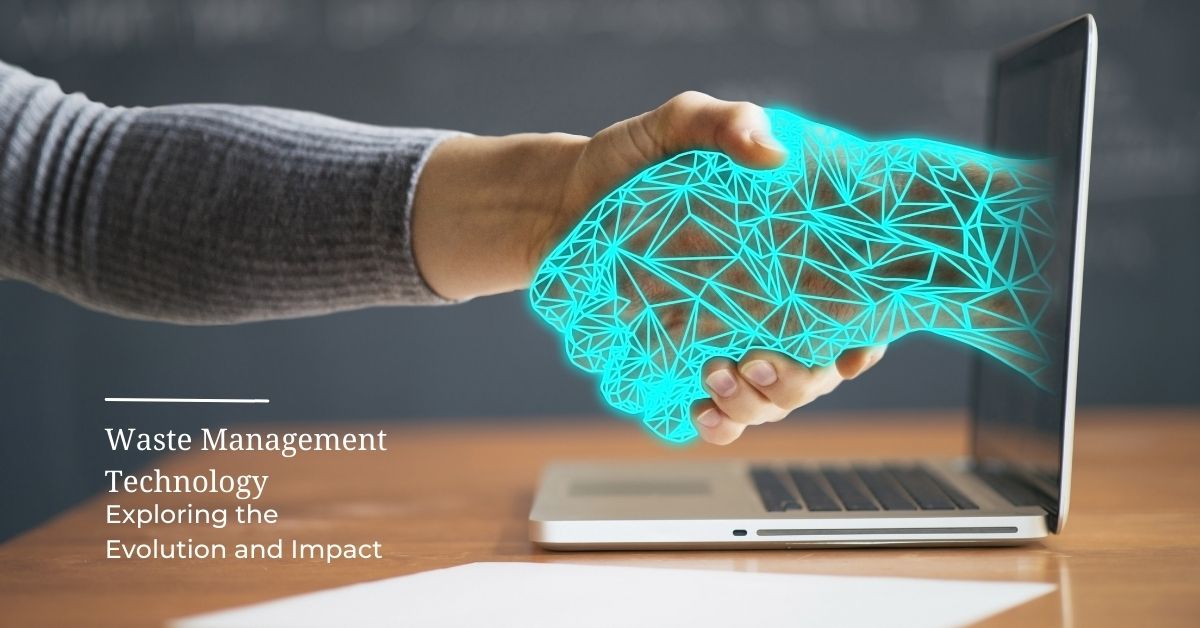Key Takeaways:
- Innovative waste management technology is critical to environmental sustainability.
- Government policy can significantly aid or impede the progression of waste management technology.
- Educating the public on new waste management technologies is essential for widespread adoption.
Contents
- 1 Introduction to Waste Management Technology
- 2 Innovations in Waste Collection and Sorting Technologies
- 3 Advancements in Waste Treatment and Processing
- 4 The Impact of Waste Management Technology on Sustainable Practices
- 5 Challenges and Opportunities in Waste Management Technology
- 6 Case Studies: Successful Implementation of Waste Management Technologies
- 7 The Role of Policy and Regulation in Shaping Waste Management Technology
- 8 The Economic Implications of Investing in Waste Management Technology
- 9 Public Perception and Education on Waste Management Technology
- 10 Looking Ahead: The Future of Waste Management and Environmental Health
Introduction to Waste Management Technology
Waste management has evolved significantly throughout history, culminating in today’s sophisticated technologies. Proper waste management is critical and continues to advance to reduce waste’s environmental footprint. Modern waste management technology enables businesses and municipalities to minimize waste, reduce contamination, and promote recycling, improving sustainability efforts. Transforming waste into a resource provides environmental, economic, and social benefits, making it essential in today’s environmentally conscious society.
Innovations in Waste Collection and Sorting Technologies
Since the emergence of the green movement, there has been a consistent drive to make waste collection more efficient and environmentally friendly. The latest advancements in waste management include semi-automated and fully automated collection systems, which utilize robotics and precision mechanics to handle waste in a way that reduces risks to humans and the environment. Additionally, there have been significant improvements and investments in sorting technology in waste management. Using a combination of sensors, artificial intelligence, and machine learning, these technologies have increased the accuracy and efficiency of sorting recyclable materials. It ensures that higher volumes of waste are recycled and the quality of the recycled material is maintained, making it more viable for reuse in producing new goods.
Advancements in Waste Treatment and Processing
Modern society constantly seeks methods to make waste management environmentally friendly and economically advantageous. It has led to significant waste treatment and processing advancements, especially in developing energy-from-waste plants. Such facilities offer a practical solution to the challenge of non-recyclable waste, converting it into valuable energy that can power homes and businesses. These technologies provide a dual benefit: reducing landfill waste and contributing to renewable energy generation. Simultaneously, there has been an enhanced focus on biological treatment methods, such as composting and anaerobic digestion, which turn organic waste into compost or biogas, both valuable commodities in an increasingly circular economy.
The Impact of Waste Management Technology on Sustainable Practices
Waste management has transitioned from its traditional roots into an arena of environmental sustainability due to the emergence of specialized technological innovations. These technologies, ranging from advanced sorting machines to sophisticated processing units, are instrumental in turning the ambitious vision of a zero-waste world into a tangible reality. One of the most significant impacts of these advancements is the potential reduction and elimination of traditional landfill usage. This shift utilizes waste management tech to reduce greenhouse gas and protect land resources.
Challenges and Opportunities in Waste Management Technology
Introducing and applying new waste management technologies is fraught with complexities and hurdles. Factors such as public acceptance, regulatory compliance, and initial investment costs must all be navigated. However, for each challenge, an opportunity emerges. The chance to redefine industry standards, to innovate in the face of pressing environmental needs, and to spearhead change that can ripple through communities and economies alike. The waste problem is not getting smaller; instead, it invites an opportunity for industry leaders and stakeholders to rise to the occasion, fostering an environment where technological uptake can thrive and increase.
Case Studies: Successful Implementation of Waste Management Technologies
Case studies from various regions worldwide showcase the impressive impact of deploying appropriate technologies on waste management systems. For instance, cities implementing intelligent bin technology demonstrate how real-time data can optimize collection routes and frequencies, leading to significant operational cost savings and reduced emissions. In these cases, communities have experienced the advantages of adopting technology that extends beyond the immediate context of waste management to more comprehensive environmental and social benefits. These success stories offer valuable insights and benchmarks for other jurisdictions seeking to revamp their waste management systems.
The Role of Policy and Regulation in Shaping Waste Management Technology
Policy and regulation act as defining forces in waste management technology. They can either fast-track the acceptance and implementation of new technologies or create roadblocks that hinder progress. Governments play a critical role in either scenario; adopting innovative waste management technology can be significantly accelerated with forward-thinking legislation and supportive policies. By offering incentives for sustainable practices, legislators can encourage businesses and communities to move towards greener waste management solutions and, in doing so, help cultivate a regulatory climate that promotes environmental prosperity.
The Economic Implications of Investing in Waste Management Technology
The financial aspect of adopting new waste management technologies must be considered. While the initial outlay for these systems can be significant, the long-term economic benefits are often compelling. Cost savings from improved efficiency and potential revenue from recycled materials and energy generation can provide a solid economic rationale. Moreover, investment in this area frequently spurs innovation and job creation and can catalyze local and regional economic development, contributing to a thriving circular economy.
Public Perception and Education on Waste Management Technology
Effective waste management technology implementation is heavily dependent on public awareness and support. Education facilitates the transition to new waste management technologies and practices. By engaging with the community and providing clear and accessible information, barriers such as skepticism and resistance can be overcome. Educational initiatives that highlight the benefits of technology in waste management, coupled with efforts to involve the public in environmental action, create a powerful force driving the successful adoption of these systems.
Looking Ahead: The Future of Waste Management and Environmental Health
Waste management technology has great potential for progress, promising to enhance the health of our environment. Innovators and policymakers are collaborating to advance sustainable waste management capabilities. Developing sophisticated systems that adapt to changing waste production and environmental standards is crucial. We can hope for a cleaner, healthier planet by staying committed to innovation and sustainability.
Good luck, Habibi!
Come to the website and explore some mind-blowing content.
- Why Every Fashionista Needs a pork pie hat in Their Wardrobe

- Ultimate Guide to Shopping for parachute pants: Where to Buy, What to Look For

- Exploring the Delicate Flavors of tagliolini Pasta: A Culinary Journey

- Uncovering the Truth Behind blog del narco: A Deep Dive into Mexico’s Drug War

- Exploring the History and Tradition of cempasuchil in Day of the Dead Celebrations

- The Ultimate Guide to boquerones: How to Prepare and Enjoy these Spanish Delicacies






